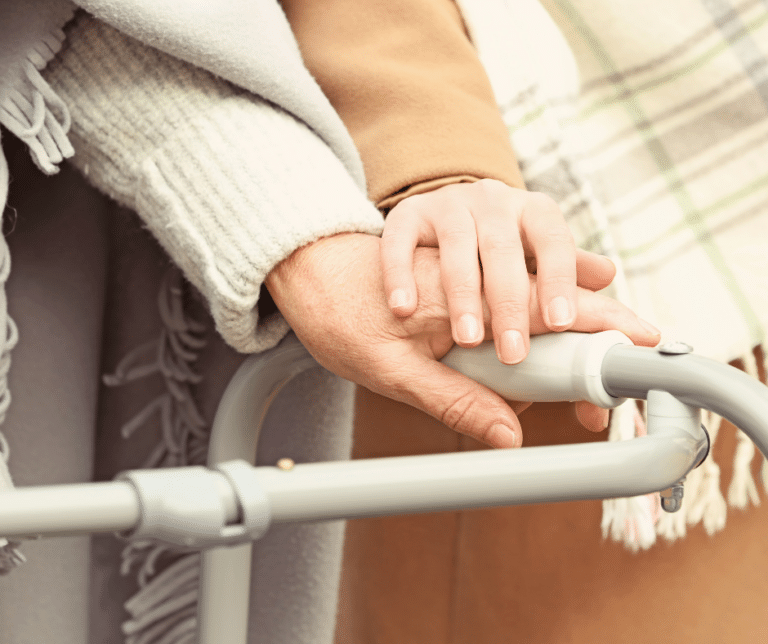Our mental and emotional health, in addition to our physical health, undergoes a variety of changes as we go through life. One such alteration that frequently comes with getting older is a change in tolerance levels. It’s essential for seniors to recognize and understand the impact that changing tolerance levels have in order to maintain relationships and general well-being. This blog will discuss how tolerance levels can change as people age and provide advice on how to handle these changes gracefully. In addition, we’ll explore the role that companion care at home plays in helping seniors process the changes.
Understanding Tolerance Levels
First, it’s important to note that we’re not talking specifically about pain or substance tolerance, which might be two of the things someone thinks about when exploring tolerance levels. Rather, the tolerance levels explored in this blog are related to the capacity to accept and put up with a variety of situations without suffering from emotional anguish or discomfort. Individual differences in these levels can be substantial, and a wide range of factors, such as personality traits, life events, cultural background, and upbringing, can have an impact.
What Things Affect Seniors’ Tolerance Levels?
Each situation is different, which is why having companion care at home helps with the consistent monitoring of seniors’ well-being. Still, there are some common factors that are thought to impact most, if not all, seniors as they age.
- Physical Well-Being: Reduced health, persistent discomfort, and physical constraints can affect an individual’s capacity to endure particular activities or surroundings.
- Cognitive Changes: Aging-related cognitive decline can impact a person’s patience and ability to tolerate ambiguity or complexity. Examples include memory loss and decreased judgment.
- Emotional Resilience: Emotional resilience is the ability to withstand hardship and discomfort in the face of adversity. Life experiences such as stress, trauma, and grief can mold an individual’s emotional resilience.
- Social Support: Shifts in social networks, such as moving, retiring, or losing friends and relatives, might affect how tolerant seniors are of social interactions and how lonely they feel.
How Can Seniors Effectively Manage Changing Tolerance Levels?
It all starts with having a supportive team on their side, which can include their medical team, loved ones, and companion care at home. From there, seniors can be encouraged to incorporate the following tips:
- Self-Recognition: Seniors who possess this self-awareness may find it easier to recognize triggers and put coping mechanisms in place.
- Communication: Handling changing tolerance levels requires open and honest communication with loved ones. Seniors should be at ease communicating their wants and boundaries and listening to other people’s viewpoints with empathy. For practice, they can role-play their conversations with a supportive friend or companion care at home if need be.
- Adaptability: The ability to be flexible and adaptable is essential for making adjustments to changing conditions. Seniors who are interested in new hobbies, routines, or social activities should investigate options that fit their interests and capabilities.
- Mindfulness Practices: Seniors can develop better self-awareness, emotional control, and acceptance of their current circumstances by practicing mindfulness techniques like yoga, meditation, or deep breathing exercises.
It’s essential for seniors to understand how aging affects tolerance in order to manage relationships with others, preserve their emotional health, and develop resilience in the face of adversity. Seniors can handle these changes with grace and resilience when they have a strong support team by their side. Working together, with loved ones and home care can help seniors thrive.
If you or an aging loved one are considering Companion Care at Home in Youngsville, LA, please contact the caring staff at BrightCare HomeCare today. Call (337) 279-5466
BrightCare HomeCare is a top provider of home care services in Lafayette, Youngsville, Broussard, New Iberia, Breaux Bridge, Carencro, Opelousas, Sunset, Crowley, Abbeville, Scott, Cecilia, Port Barre, Iota, and the surrounding areas.
Through a personalized care plan, BrightCare HomeCare provides the necessary services and care to cater to your unique personal and health needs. With us, we ensure around-the-clock services and supervision to help achieve optimum health and wellness.
We are a top provider of home care services in Lafayette, Youngsville, Broussard, New Iberia, Breaux Bridge, Carencro, Opelousas, Sunset, Crowley, Abbeville, Scott, Cecilia, Port Barre, Iota, and the surrounding areas.
- Helping Seniors With Mobility Issues Maintain Their Physical Fitness - April 21, 2025
- Five Things Seniors With Alzheimer’s Need to Thrive at Home - April 3, 2025
- What Can Family Caregivers Do to Alleviate Stress from Caregiving? - March 18, 2025


